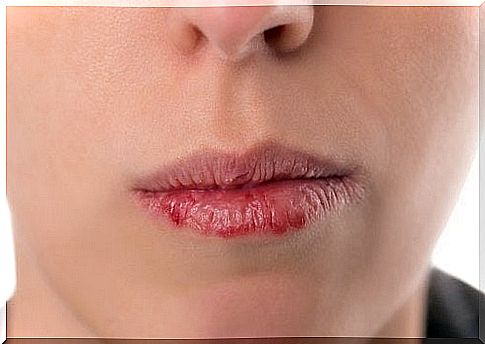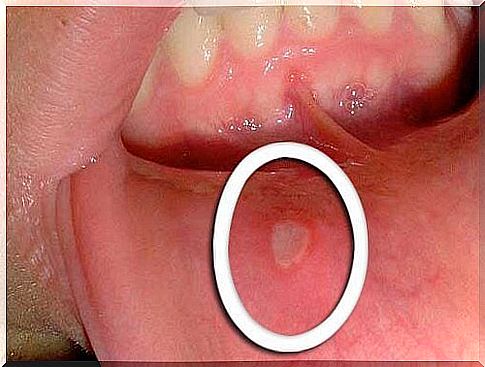Oropharyngeal Cancer: Symptoms That Everyone Should Know
Many symptoms that indicate oropharyngeal cancer can be confused with other ailments, but should not simply be dismissed as unimportant. Non-smokers can also be affected.

A oropharyngeal can not only result from smoking. This cancer, which spreads in the mouth, tongue, roof of the mouth, and throat, is also associated with solar radiation and the human papillomavirus (HPV).
Although this type of cancer is not very common, it is important to know about it. The risk of developing it increases from the age of 50.
The higher the life expectancy, the greater the risk of oropharyngeal cancer , with men more often affected by this disease.
It is important to recognize symptoms early on. Especially because they can be mistaken for a simple herpes, aphthous ulcers or inflammation in the mouth.
Non-smokers usually do not think that they could suffer from this cancer, so they should pay particular attention to signs that indicate it, because even those who do not consume tobacco can get it.
Therefore, any information about oropharyngeal cancer is very valuable in order to identify it in an early phase if necessary.
Symptoms for oropharyngeal cancer
Carcinoma is a cancer that originates in cells in the skin or mucous membranes. They are not simple injuries or aphthous ulcers.
People with a weak immune system are used to having frequent mouth sores, minor injuries, bleeding gums or aphthae and are therefore often unaware of the signs of oropharyngeal cancer.
However, if the doctor carefully examines the tongue and throat area, they can make the correct diagnosis.
Then a biopsy is done to clarify a possible cancer.
Then we name the most common symptoms that occur in oropharyngeal cancer.
Physical changes in the mouth

- The first signs of oropharyngeal cancer include small injuries in the mouth that do not heal.
- In addition, red or white spots often develop in the tongue area, on the gums or in the corners of the mouth.
- It’s important to be aware that any unusual change that doesn’t heal in a few days should be examined by a doctor.
Small ailments that get worse over time
Another characteristic of oropharyngeal carcinoma are discomfort when chewing or swallowing. People with artificial dentures notice from one day to the next that the prosthesis is causing discomfort and bleeding and pain.
- Suddenly speaking can cause pain.
- Moving your tongue or even brushing your jaw can cause pain and persistent discomfort.
- The pain can spread to the ear.
The feeling of having a “button” in your throat
Difficulty swallowing and a constant burning sensation in the area of the tonsils, sometimes even a bloody cough – these symptoms should definitely be observed and investigated.
- Often these complaints can be traced back to illnesses that are no longer serious. In addition, oropharyngeal cancer can also be benign, so you shouldn’t think about the worst right away, but you should definitely get to the bottom of it.
- Early diagnosis can make treatment easier, so any changes should be monitored.
Inexplicable weight loss

Most cancers are associated with weight loss. In the case of oropharyngeal cancer , it often happens that the person is no longer hungry or cannot chew normally.
In addition, the immune system is often weakened, which is why weight loss occurs.
Can preventive measures be taken against oropharyngeal cancer?
No illness can be 100% avoided through preventive care. You can avoid certain triggers in order to keep the risk as low as possible, but completely eliminating them is impossible.
The following factors increase the risk of developing this condition:
- tobacco
- alcohol
- Human Papillomavirus (HPV). HPV16 is specifically associated with throat cancer (including oropharyngeal cancer).
- Ultraviolet light. For example, lip cancer is more common in people who work outdoors because they are exposed to sunlight for longer.
- Bad diet and weak immune system.
- Genetic diseases such as Fanconi anemia.

Now that you know possible triggers, you can change your lifestyle accordingly. Quit smoking, eat a varied, balanced diet and protect your skin and lips from harmful radiation.
You must not be afraid under any circumstances and should consult a doctor in case of complaints to have a diagnosis made.
Well worth being careful. Health issues should never be postponed.









